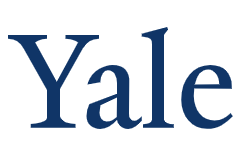Postdoctoral Associate positions in the Digital Ethics Center (DEC), Yale University

Under the direction and supervision of Prof. Luciano Florido, the Digital Ethics Center (DEC) at Yale University seeks to appoint full-time Postdoctoral Associates to join this multidisciplinary center. The Postdoctoral Associates will be responsible for developing research projects and studies, writing peer-reviewed articles, and formulating new research questions for future analysis. We are looking for individuals with interest and experience in
- (a) addressing the human, societal, and environmental issues brought about by the development of digital technology (from the Web and social media to AI and robotics),
- (b) informing and steering policy and legal debates nationally and internationally on these issues, and
- (c) deepening their expertise to transition to their independent research careers.
The successful candidate can expect significant intellectual autonomy coupled with supportive mentorship to develop and deliver novel and meaningful research in the Governance, Ethical, Legal, and Social Implications (GELSI) of digital technologies in the following areas (in alphabetical order):
- computer science and its GELSI;
- computer games and their GELSI
- cyberwar, cyberconflicts, and their GELSI;
- data science and its GELSI;
- digital economy, especially the GELSI of blockchain, cryptocurrencies, Insurtech, DEFI, game theory and online behavior (e.g., digital advertisement, recommender systems), changing nature of work, gig economy, app economy, network effect;
- digital ethics, including computer ethics, cyber ethics, ethics of AI, information ethics, machine ethics; roboethics;
- e-art, digital art, new aesthetics, NFT, and their GELSI
- e-health, digital welfare, well-being, and their GELSI;
- HCI and its GELSI;
- human rights, human dignity, digital divide, UN SDG;
- information, disinformation, misinformation, deepfakes, fake news, censorship, propaganda, the future of journalism and media, and their GELSI
- law and regulations concerning digital technologies, especially AI and copyright, patent, IP, antitrust, AI auditing, AI legislation;
- network theory and its GELSI
- political science, especially digital democracy (e-democracy, democracy in digital society), agile governance, platform governance, digital geopolitics, digital sovereignty;
- smart cities, twin cities, digital urbanization, and their GELSI
- social data science, especially FAccT*ML issues;
- security (including dark web, ransomware, surveillance) and its GELSI;
- virtual reality, augmented reality, immersive reality, metaverse, XR, and their GELSI.
Key Responsibilities
- Analyse significant GELSI of digital technologies
- Design of qualitative or quantitative studies addressing significant GELSI of digital technologies
- Publish research papers in international peer-reviewed journals or conferences in areas relevant to the study of the GELSI of digital technologies, possibly in collaboration with other DEC members.
- Collaborate with other DEC members to prepare and deliver conference presentations of research results.
- Work on dissemination and outreach
- Edit research outputs (e.g., edited volumes or conference proceedings)
Skills & Qualifications
- Recently completed a PhD in relevant fields, including but not limited to: anthropology, computer science, data science, economics, ethics, jurisprudence, mass media, philosophy, political science, psychology, and sociology.
- Proven record of publications and research outputs commensurate with career stage
- Knowledge or experience of normative analysis
- Specialization or demonstrated interest in the study of GELSI of digital technologies
- Excellent writing skills demonstrated in research publications
- Exceptional project management skills
- Competence in quantitative or quantitative methods
- Ability to communicate effectively (e.g., through writing, presentations) with different audiences (research community, general public, policymakers)
Additional Information:
The Postdoctoral Associate position is envisaged to last up to four years, with an initial appointment of one year renewable upon satisfactory progress. Compensation is determined by experience. More information can be found here. This is not a remote opportunity. The position is located at the Digital Ethics Center, on the campus of Yale University in New Haven, CT.
In accordance with university requirements, postdoctoral trainees in this position are expected to be on campus full time for in-person training.
To Apply
A relevant doctoral degree and research experience with a strong publication record are required. We welcome candidates who add to the diversity of the center.
Applications will be reviewed on a rolling basis through June 1, 2024. The anticipated start date is in Fall 2024
Please send your application to dec@yale.edu, using the subject line “Postdoc Applicant,” and including the following documents:
- Cover letter explaining your background and motivation for the position (2 pages maximum), including contact information for 3 references.
- Most current CV (maximum 3 pages);
- A peer-reviewed, published article; and
- Short (ca. 2,000 words long) proposal about a GELSI research project you would like to develop at the DEC, indicating the problem to be addressed, the working hypothesis about the solution, and the methodology that may be used.
Please submit your materials as PDF files and name them LastName-FirstName.coverletter.pdf, LastName-FirstName.CV.pdf, and LastName-FirstName.proposal.pdf
Qualified applicants will be contacted to schedule an interview, possibly followed by an invitation for a 20-minute presentation, and a request to submit two letters of recommendation.
ABOUT THE DIGITAL ETHICS CENTER AT YALE
The Digital Ethics Center (DEC) at Yale University investigates and evaluates the Governance, Ethical, Legal, and Social Implications (GELSI) of digital technologies and the profound impact of the digital age on human life, society, and the environment, striving to influence the direction of technological development towards a more ethical and sustainable future. The DEC aims to identify and enhance the benefits of digital innovation and technologies while mitigating their risks and shortcomings. As part of the Faculty of Arts and Sciences, the DEC draws from many disciplines, including fields such as AI, anthropology, biomedical ethics, computer science, cybersecurity, data science, economics, epistemology, ethics, ethnography, information theory, Internet studies, law, mathematical logic, management studies, multimedia studies, philosophy, political science, sociology, and statistics and data science. Through its multidisciplinary approach and translational research, the Digital Ethics Center (DEC) aims to provide actionable recommendations and strategies for stakeholders, policymakers, technology experts, and society at large. In doing so, it strives to ensure that the progress of digital technology promotes fundamental human rights, supports the flourishing of all environments, and aligns with the common good.
Yale University is an Affirmative Action/Equal Opportunity employer. Yale values diversity among its students, staff, and faculty and strongly welcomes applications from women, persons with disabilities, protected veterans, and underrepresented minorities.
